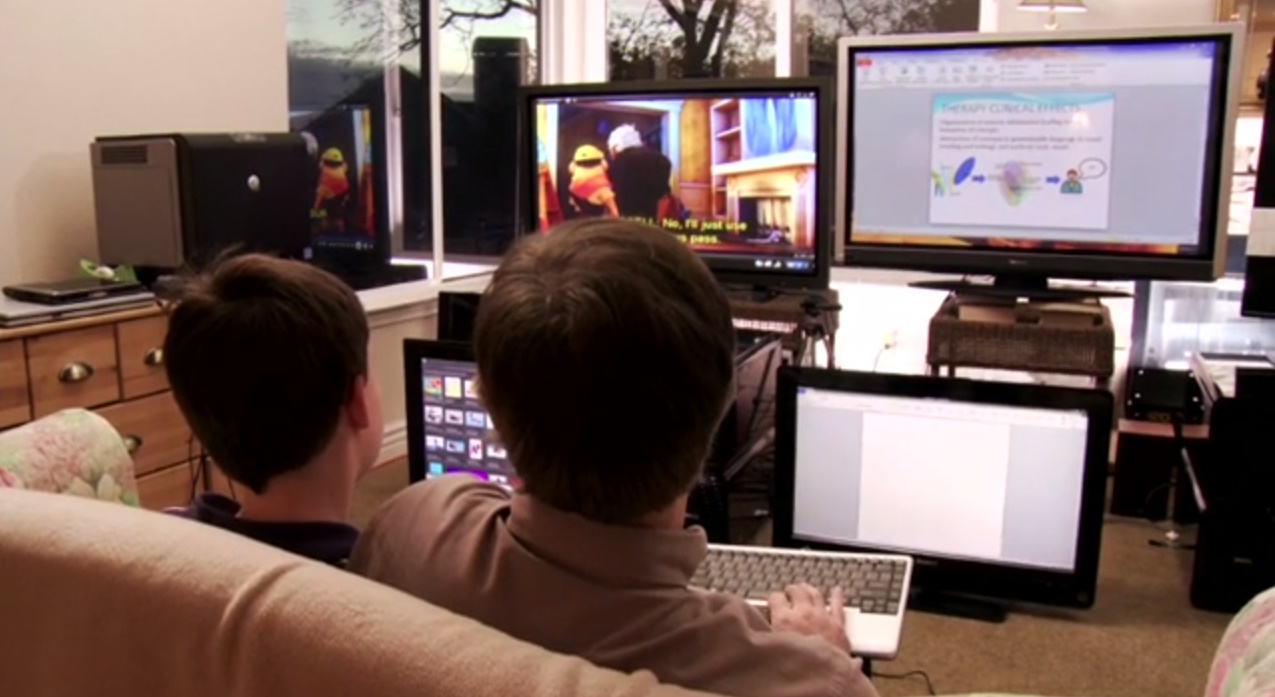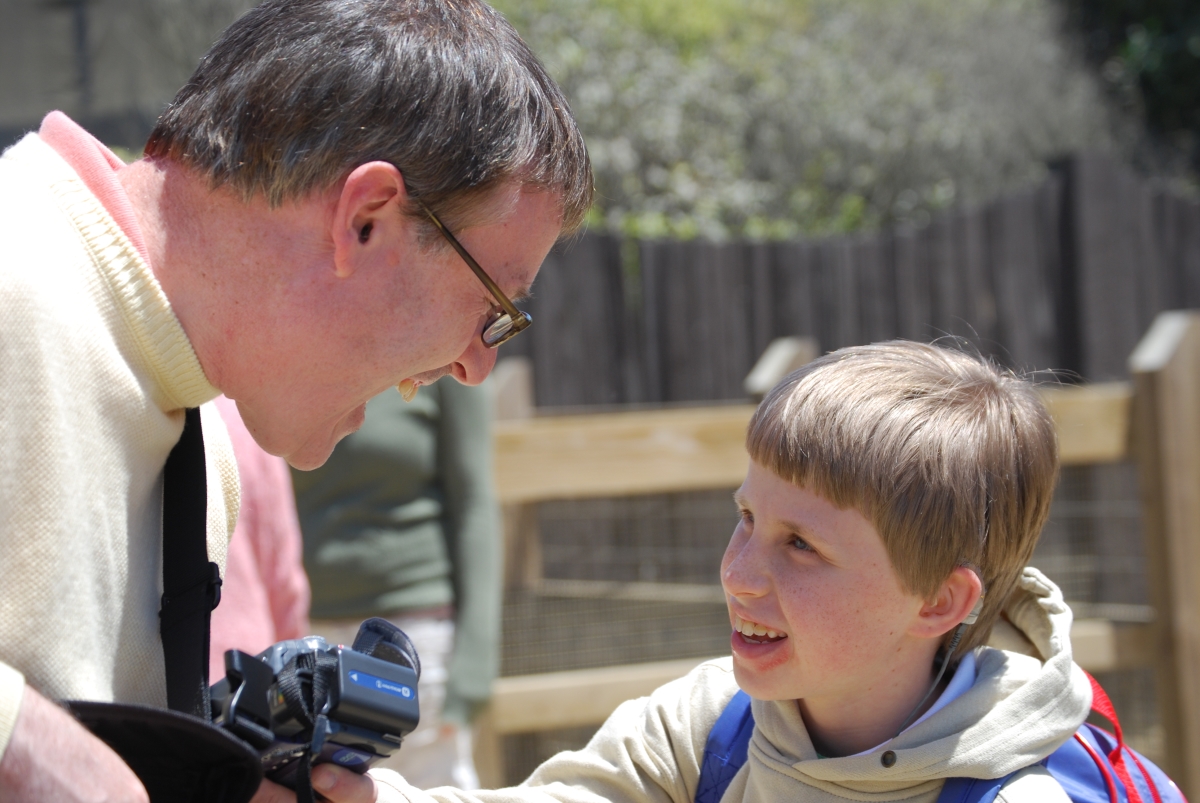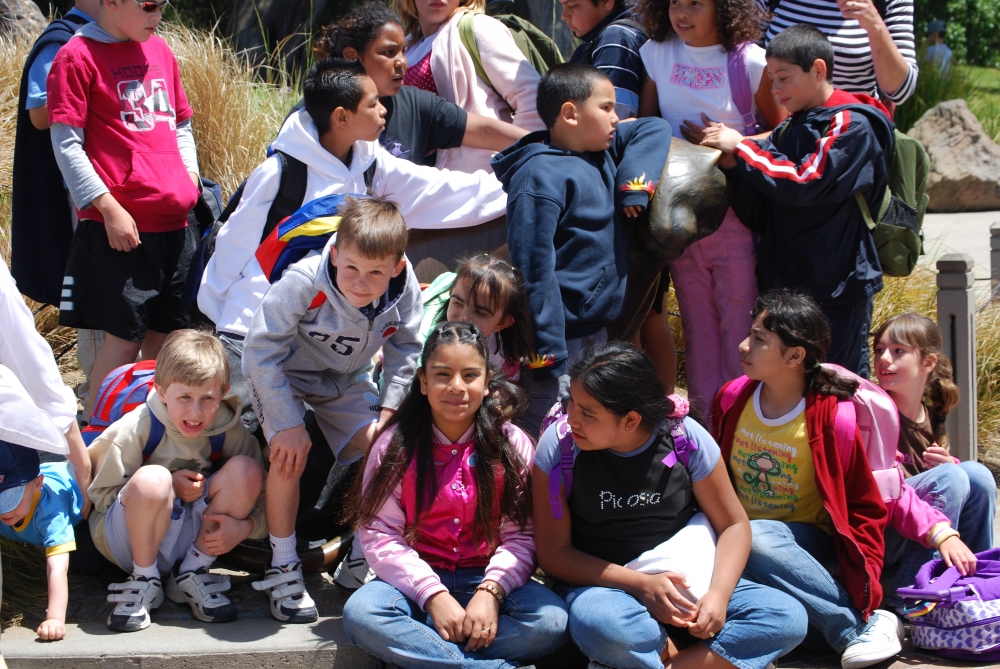Behavior management and the summer months.
When it comes to an autistic child one of the aspects that strikes the greatest fear in parents is the whole conundrum of behavior management. And what is behavior management? In its broadest sense managing behavior is a lot about getting your autistic child to engage in society in a typical, productive and safe way. There is a whole industry that focuses on this area from applied behavioral analysis (ABA), to play therapists (like floor time) to educational strategies. Over the years I’ve had the opportunity to work with some wonderful behaviorists who really helped me get a grasp of connecting with my autistic sons.
Work to understand your child.
 As Carl Schrader, of BCRC in Marin, once said to me “try and spend one day without speaking to anyone and see how you feel”. What Carl was seeking to do was to help me understand what it would be like to walk in the shoes of my autistic sons who were at the time nonverbal. So yes, our children face some very significant challenges. But that does not mean that we cannot understand what is going on inside their young bodies. To take steps to effectively parent them. So, what were the gems of wisdom from Carl beyond in some ways stating the obvious?
As Carl Schrader, of BCRC in Marin, once said to me “try and spend one day without speaking to anyone and see how you feel”. What Carl was seeking to do was to help me understand what it would be like to walk in the shoes of my autistic sons who were at the time nonverbal. So yes, our children face some very significant challenges. But that does not mean that we cannot understand what is going on inside their young bodies. To take steps to effectively parent them. So, what were the gems of wisdom from Carl beyond in some ways stating the obvious?
Be who your child wants you to be.
Well the first thing I would say about Carl was that he was one of the calmest people I’ve ever met. Anyone of us can talk to the chaos that a special needs child can breathe into the lives of families. And there’s so much pressure on us to act. To try and solve the conundrum that is our autistic child. All while trying to have a normal life. You would not need to be a rocket scientist to think that being thrust into this situation was going to create a lot of confusion and a great deal of stress. So, when Carl visited our home and met with the boys there was an air of positivity and calming normality that set him apart. In this, autistic children are no different from typically developing kids, Carl would say. And if there is confusion, anxiety and fear in a child’s parents then the child is going to pick this up.
Set your expectations.
Our first strategy, behavioral strategy, with respect to the boys was to think of them as typical and act accordingly. This didn’t mean that we ignored their disabilities or the effort involved, but our compass heading was always pointing to a normal life. If we were going to Albertsons to shop, then the boys came with us. If their class was taking a field trip to the San Francisco zoo, they went. Come hell or high water we were going to have the kind of life that any parent would expect for their children. Was it going to take more effort, I mean a lot more effort to make it happen? Certainly, still that was a whole lot easier than sitting at home and climbing the walls. And believe me, no one is really interested in hearing about long term chronic sagas. Anyway, as Val would say, tea and sympathy only goes so far. And so, as parents we decided very firmly, that we were indeed going to parent our children.
Be practical
 Valarie and I did what most special-needs parents do. We read lots of literature on behavior management. But the more we read the more confused we felt. It all seemed so prescriptive, robotic and cookie-cutter. To us our sons were people, with needs and desires just like everyone else. So, we tried to walk in their shoes and get a sense for what would have meaning to them. We also needed to be practical, both boys were nonverbal and had no language. They also craved physical activity and movement. So, as I have said in many posts over the years connecting the boys to sports activities was an obvious way to go. And these activities were huge reinforcers, things that the boys would do just about anything to engage in. Speak to any parent of any child anywhere in the world and they will tell you this: that some of the most wonderful moments that you spend with your children is outside in God’s country.
Valarie and I did what most special-needs parents do. We read lots of literature on behavior management. But the more we read the more confused we felt. It all seemed so prescriptive, robotic and cookie-cutter. To us our sons were people, with needs and desires just like everyone else. So, we tried to walk in their shoes and get a sense for what would have meaning to them. We also needed to be practical, both boys were nonverbal and had no language. They also craved physical activity and movement. So, as I have said in many posts over the years connecting the boys to sports activities was an obvious way to go. And these activities were huge reinforcers, things that the boys would do just about anything to engage in. Speak to any parent of any child anywhere in the world and they will tell you this: that some of the most wonderful moments that you spend with your children is outside in God’s country.
Know how to trade
 I remember a conversation that Val related to me about a discussion she had with Eoin’s teacher, Ginger Matich, in Proctor Terrace school. Val was apologizing to Ginger for Eoin not having his schoolbooks in school that day. Oh no, she said, that’s not your fault. Eoin forgot his books and as with any child in my class I made sure that he understood there were repercussions. It was from these discussions with Ginger that we discovered the true value of report cards, token economies and how to do something that the boys had been doing with each other. Barter one activity for another. So if the boys wanted to participate in gymnastics, then they had to line up just like everyone else. And if they didn’t we went home. Did we have meltdowns? Sure we did. Did the boys make a scene? Absolutely, every time.
I remember a conversation that Val related to me about a discussion she had with Eoin’s teacher, Ginger Matich, in Proctor Terrace school. Val was apologizing to Ginger for Eoin not having his schoolbooks in school that day. Oh no, she said, that’s not your fault. Eoin forgot his books and as with any child in my class I made sure that he understood there were repercussions. It was from these discussions with Ginger that we discovered the true value of report cards, token economies and how to do something that the boys had been doing with each other. Barter one activity for another. So if the boys wanted to participate in gymnastics, then they had to line up just like everyone else. And if they didn’t we went home. Did we have meltdowns? Sure we did. Did the boys make a scene? Absolutely, every time.
It takes a village to raise a child
But we kept coming back. And somewhat to our surprise the clubs, coaches, other parents saw and respected what we were doing. They say it takes a village to raise a child. Contrary to what we thought, the disruptive behavior of the boys helped to build relationships with the very people that we needed to get the boys out there. One of the experiences which terrified Conor was going to the cinema. As in other areas of the boys’ lives, I was bartering Conor’s attendance at a movie with a major preferred activity. And without a doubt, in the darkness of the cinema Conor was truly frightened. It took every ounce of reassurance and encouragement to get Conor to even sit down. And I was concerned about how people around me would view what I was doing. That is, until Conor’s school bus driver took Val aside at the school. I saw your husband with Conor last night at the up movie she commented, Pixar’s latest release at the time. He was absolutely wonderful, his patience and reassurance with Conor was just something to see. And I know a lot of other people who think the very same way.
Communication, communication, communication.
 Of course, to use a token economy with most preferred activities over least preferred, you need a communication system in place to get your intentions across. For Val and I, discovering how to teach language through Disney media just saved our lives. Being able to talk to Owen and exchange messages on the whiteboard with Conor made everything else possible. But even before this, we learned how to use picture exchange communication (PECS) and set up visual schedules using images. And of course, communication is a two-way thing. We spent as much time watching the boys and trying to understand what they were thinking as we did communicating to them. It is important to understand if the boys were acting out, just like any toddler, or if they were confused, frustrated or full of anxiety. So, listening visually as well as communicating visually was essential in introducing our little darlings to the world.
Of course, to use a token economy with most preferred activities over least preferred, you need a communication system in place to get your intentions across. For Val and I, discovering how to teach language through Disney media just saved our lives. Being able to talk to Owen and exchange messages on the whiteboard with Conor made everything else possible. But even before this, we learned how to use picture exchange communication (PECS) and set up visual schedules using images. And of course, communication is a two-way thing. We spent as much time watching the boys and trying to understand what they were thinking as we did communicating to them. It is important to understand if the boys were acting out, just like any toddler, or if they were confused, frustrated or full of anxiety. So, listening visually as well as communicating visually was essential in introducing our little darlings to the world.
Summary.
 As with any parent and family, managing the behavior of your children is a vital and necessary endeavor. And this maxim is certainly true for our children be they autistic or different in a myriad of ways. And as with most any child, if you want to get them to do something, you need to get them to want to do it. So having an armory of highly preferred activities that you can trade against nonpreferred but necessary activities is very important. Strategies like using a token economy, or report cards, all can play into this. But most importantly it is key to be able to communicate what you want and what’s going if your child complies. Work first, play later is the scheme of things. As parents, you need to be deliberate, empathic and consistent, otherwise you’re going to get played one way or the other. Being autistic doesn’t necessarily mean that you don’t have an intelligent child! Make sure you have a functioning communication structure in place, be it picture exchange right up to verbal discussion. If confusion reigns you are going to be in trouble right out of the gates.
As with any parent and family, managing the behavior of your children is a vital and necessary endeavor. And this maxim is certainly true for our children be they autistic or different in a myriad of ways. And as with most any child, if you want to get them to do something, you need to get them to want to do it. So having an armory of highly preferred activities that you can trade against nonpreferred but necessary activities is very important. Strategies like using a token economy, or report cards, all can play into this. But most importantly it is key to be able to communicate what you want and what’s going if your child complies. Work first, play later is the scheme of things. As parents, you need to be deliberate, empathic and consistent, otherwise you’re going to get played one way or the other. Being autistic doesn’t necessarily mean that you don’t have an intelligent child! Make sure you have a functioning communication structure in place, be it picture exchange right up to verbal discussion. If confusion reigns you are going to be in trouble right out of the gates.







Leave A Comment